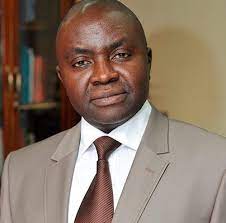….Estimates N10Trn Yearly Savings From FX, Fuel Subsidy Removal
The Centre for the Promotion of Private Enterprise (CPPE), one of the private sector advocacy groups in Nigeria, has highlighted some key economic development initiatives the incoming administration should prioritize in its reform agenda to strongly position the nation’s economy on the path of sustainable growth in the years ahead.
The Centre, in a Note titled ‘Economic Reform Agenda for Incoming Administration’ issued by its Chief Executive Officer (CEO), Dr. Muda Yusuf, listed the key issues for the incoming President to focus on as including Economic Governance, Macroeconomic Issues, Fiscal Consolidation, Foreign Exchange Policy Reform, Oil and Gas Sector Reform, Trade and Tariff Reform, Agriculture, Industrialization, Regulatory Reforms, and Financial Institution Reforms.
According to the think-tank chief, the recommendations were informed by the fact that the Nigerian economy is in a stumbling and fragile state and in dire need of a new direction and that the political transition offers a great opportunity to chart a new course.
On the issue of economic governance, the Centre advised the administration to establish quality economic governance consistent with tested economic principles and empirical evidence, and contextualized within socio-economic peculiarities, adding that this is critical from the onset of the administration for signaling and investor confidence.
Specifically, the group pointed out that good economic governance framework would entail setting up a ‘Transition Committee on the Economy’ to come with propositions of what needs to be done differently and ensure the delivery quick wins in the in the first one month of the administration as well as a technically sound economic team to give guidance and direction on general economic policy direction, policy conceptualization and urgent reforms.
It added that the incoming leader should promote an economy where there is level playing field for all players with a transparent economic policy formulation process, competitive economic environment with minimum monopoly dominance, and expand the role of markets for value delivery and boosting of private enterprise in the economy, amongst other desirable options for growth.
Also, the CPPE advised the incoming administration to prioritize macroeconomic stability with emphasis on moderating inflationary pressures, stabilizing the exchange rate and boosting economic growth.
On fiscal consolidation issues, it canvassed a reformed tax regime to ensure efficiency in tax administration, reduce tax evasion and tax avoidance and eliminate multiple taxation; remove fuel subsidy to save an estimated N7 trillion annually, and eliminate foreign exchange subsidy to unlock a minimum of N3 trillion revenue annually from the sale of CBN forex to the official foreign exchange window.
Similarly, the think-tank urged the incoming leader to unlock more income from revenue generating agencies through enhanced efficiency of their operations; initiate budget reforms to ensure fiscal discipline, curb budget padding, curb duplication of projects and review the service wide votes to ensure transparency; ensure value for money in government expenditure and procurement and commit to reduction in the cost of governance.
This is even as it canvassed the need for the government to initiate foreign exchange policy reform to unlock inflows of capital into the economy, reduce arbitrage in the forex market and improve transparency in the forex allocation, ensure a market reflective exchange rate to eliminate the distortions in the forex ecosystem; ensure level playing field in forex transactions; and remove impediments to markets mechanism in allocation of forex.
On agriculture, the CPPE recommended that policy on agriculture must be holistic, focusing on the entire value chain and that due attention must be given to cost and availability of inputs, production and productivity, application of technology, logistics and marketing, processing and storage.
It also maintained that there was an urgent need to transit from subsistence farming to mechanized and commercial agriculture driven by technology, attract the youths into agriculture and to strengthen the linkage between agriculture and industry within a sustainable backward integration framework.
In addition, the Centre recommended that to boost industrialization, the incoming administration should ensure liquidity in the foreign exchange market to guarantee access to foreign exchange for the procurement of raw materials and machineries for industry as well as rapid investment in core industries such as iron and steel, petrochemicals, aluminum smelter, pulp and paper and refineries to support backward integration aspirations of government.
According to the think-tank, scaling up investment in infrastructure through the injection of more funds and the attraction of private capital into the infrastructure space will reduce production cost and boost productivity in manufacturing.
It also maintained that creation of more industrial parks across the country and improvement in the facilities in existing ones and strengthening current development finance to support the real sector with appropriate financing – single digit facility with a minimum of five years tenure – were desirable steps for the incoming to take.






